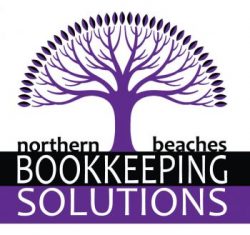How to Avoid Cash Flow Problems in Your Small Business
Cash flow is the lifeblood of every small business. Without proper cash flow management, businesses can quickly run into financial trouble. From late payments to unexpected expenses, cash flow issues can derail your operations and jeopardise your financial stability. Here’s how to avoid cash flow problems and keep your small business on track:
1. Monitor Cash Flow Regularly
Keeping a close eye on cash flow is essential for identifying potential issues early. Implement cash flow tracking tools to monitor income, expenses, and outstanding invoices weekly. This helps you stay informed about your financial position and address problems promptly.
2. Invoice Promptly and Follow Up on Payments
Delayed payments can significantly impact cash flow. Send invoices immediately after delivering goods or services and follow up with clients regularly. Consider implementing automated invoicing systems to streamline the billing process and reduce late payments.
3. Offer Early Payment Incentives
Encourage clients to pay invoices promptly by offering early payment discounts. A 5% discount for payments made within 7 days can motivate customers to settle their accounts quickly, boosting cash flow and reducing outstanding debt.
4. Manage Expenses Wisely
During periods of financial uncertainty, scrutinise your expenses and identify areas to cut costs. Focus on reducing discretionary spending, renegotiating supplier contracts, and finding cost-effective alternatives for essential services.
5. Create a Cash Reserve
A cash reserve acts as a financial buffer during slow periods or unexpected downturns. Set aside a percentage of your monthly revenue to build a cash reserve. This provides a safety net to cover expenses when cash flow is tight.
6. Implement Flexible Payment Terms
For clients facing financial difficulties, consider offering flexible payment plans. This helps you maintain positive relationships with clients while ensuring a steady inflow of cash. Be sure to clearly outline payment terms and enforce late fees to avoid payment delays.
7. Use Cash Flow Forecasting
Cash flow forecasting helps you anticipate future financial needs and plan for potential cash shortfalls. Use historical financial data to predict income and expenses over the next few months. This proactive approach allows you to adjust spending and manage resources effectively.
8. Seek Professional Financial Support
If cash flow problems persist, consider seeking assistance from a bookkeeper or financial advisor. They can provide expert guidance on managing cash flow, reducing expenses, and implementing effective financial strategies tailored to your business.
Frequently Asked Questions (FAQs)
Why is cash flow important for small businesses?
Cash flow is essential for covering operating expenses, paying suppliers, and managing unexpected financial challenges. Without proper cash flow management, small businesses may struggle to meet financial obligations and sustain operations.
How can I prevent cash flow problems?
To prevent cash flow problems, monitor cash flow regularly, invoice promptly, manage expenses, build a cash reserve, and implement cash flow forecasting. Working with a bookkeeper can also provide valuable financial insights.
What should I do if I encounter a cash flow problem?
If you encounter a cash flow problem, identify the source of the issue, prioritise essential expenses, negotiate with suppliers, and consider implementing flexible payment plans for clients.
Conclusion
Managing cash flow effectively is crucial for small business sustainability. By monitoring cash flow, invoicing promptly, and maintaining a financial buffer, you can avoid cash flow problems and keep your business financially secure. For expert cash flow management support, contact Northern Beaches Bookkeeping Solutions today.
